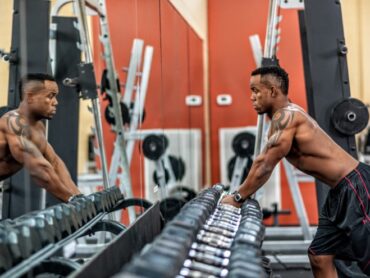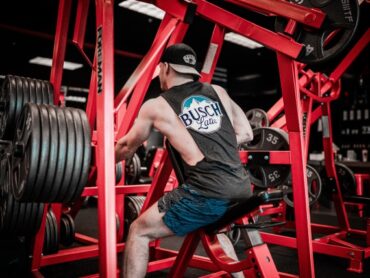Sports meals for endurance aren’t just a supplement to training—they’re a core component of endurance success. Whether you’re preparing for a marathon or long-distance cycling event, the meals you choose can shape your performance and recovery. Proper sports meals provide energy, prevent fatigue, and help you recover faster.
 Photo by The Lazy Artist Gallery
Photo by The Lazy Artist Gallery
Understanding the Role of Sports Meals in Endurance Performance
Long-distance running and cycling push your body to its limits. Sports meals aren’t just about eating for the sake of energy. They replenish glycogen stores, manage energy expenditure, and optimize hydration for sustained performance. Without the proper nutrition, you risk hitting “the wall” — a moment of complete physical exhaustion.
The Science Behind Endurance Nutrition
Carbohydrates are your body’s primary fuel source during endurance activities. They break down into glucose, which muscles rely on for energy. Proteins aid muscle recovery, while fats provide a long-lasting energy reserve. Hydration is also critical as it regulates body temperature and prevents muscle cramps. According to research on nutrition for endurance athletes, optimal performance depends on the right balance of these nutrients.
Common Mistakes in Endurance Nutrition
Errors like skimping carbs, overhydrating, or eating hard-to-digest meals can derail your performance. For example, ignoring an adequate carbohydrate intake could force your body to break down proteins (muscle tissue) for energy, leading to fatigue and slower recovery. Eating too close to an activity can also trigger stomach discomfort.
Pre-Run and Pre-Ride Nutrition Strategies
A well-rounded pre-activity meal gives you a head start in maintaining energy levels during long exercises.
Carbohydrate Loading: Fact or Fiction?
Have you ever heard of carb-loading? It’s no myth, but it has specific applications. Carb-loading involves consuming carb-heavy meals 2–3 days before prolonged endurance events. This practice stocks glycogen reserves to help stave off fatigue. Read more about the science behind carb-loading for athletes and fitness enthusiasts.
Timing Your Meals for Maximum Energy
Eating at the right time is as important as what you eat. Consuming a balanced meal 3–4 hours before your activity is the consensus. Opt for something like oatmeal with fruit or eggs with whole-grain toast. Thirty minutes before, you can consume a light snack like a banana or an energy gel to top off your reserves.
Fueling During Long Runs and Rides
Endurance activities last over 90 minutes, so call for refueling on the go. A mix of quick sugars and easy-to-carry snacks can keep your stamina high.
What to Eat and Drink on the Go
Portable options like energy bars, gels, or chewy candies provide quick carbs. Flapjacks are excellent for long cycling sessions since they’re high in calories and easy to handle. Learn more about fueling strategies for cyclists to stay energized.
Keeping Hydration Levels Optimized
Dehydration isn’t just uncomfortable; it’s dangerous. Sip water consistently and include electrolytes to prevent imbalances, especially sodium and potassium loss. On hotter days, increase electrolyte intake to compensate for higher sweat rates.
Post-Run and Post-Ride Recovery Meals
Recovery can make or break your training consistency. Post-activity meals should focus on muscle repair and glycogen replenishment.
The Role of Carbs and Protein in Recovery
Combine carbohydrates and protein as soon as you finish. Studies suggest a 3:1 carb-to-protein ratio for ideal recovery. For example, a turkey sandwich with fruit works wonderfully after a run. Read about balanced recovery nutrition.
Quick and Easy Recovery Meal Ideas
If convenience is key, whip up a smoothie with milk, banana, and peanut butter. Or, try whole-grain pasta paired with grilled chicken for a hearty recovery meal. These meals restore your glycogen and help muscles rebuild.
Training Your Gut for Endurance Success
Your stomach isn’t used to processing food mid-workout unless you train it. Just like muscles, your gut needs conditioning.
Gradual Adaptation to Sports Meals
Start experimenting during shorter training sessions. Introduce small amounts of energy gels or electrolyte drinks. Over time, you’ll discover what works best — and prevent unpleasant surprises during more extended events.
Tracking Your Nutrition Effectiveness
Keep a journal of your meals, snacks, and performance. This will help you identify what fuels you most effectively and eliminate foods that cause discomfort. Sticking to proven combinations will strengthen your whole nutrition game.
Conclusion
For endurance, sports meals significantly impact how far and fast you can go. Pre-event meals boost glycogen stores, mid-activity snacks keep you energized, and recovery meals repair muscles. Planning these meals ensures your body has the fuel to excel. By training your body and nutrition, you’ll confidently push through the limits.
Remember, success isn’t just about training harder; it’s also about eating smarter. For more guidance, check out these recipes for endurance athletes.


Hi, this is a comment.
To get started with moderating, editing, and deleting comments, please visit the Comments screen in the dashboard.
Commenter avatars come from Gravatar.